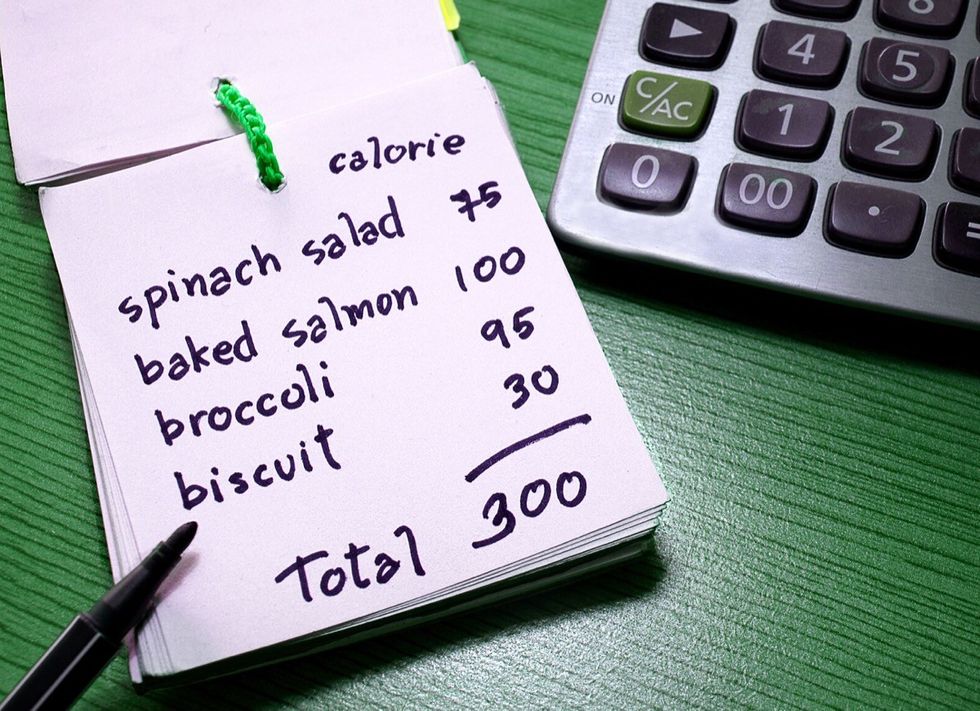We’d all like to get back the metabolism of our youth—but since that’s not a feasible option, the best we can do is make good choices that keep our metabolism operating at full capacity. However, some common dietary and fitness habits billed as “healthy” could actually be slowing down your metabolism.
“Metabolism is not just about weight loss—it’s about energy, hormones, and how your body functions,” shares Gowri Reddy Rocco, MD, a specialist in family medicine and regenerative, anti-aging, and functional medicine. “If your metabolism slows down, you start feeling more sluggish, tired, and even anxious.” Of course, you may also find that you can’t lose weight or it takes you much longer to drop those stubborn pounds.
To avoid these all-too-common pitfalls, read on for the choices that doctors say you’ll want to stop making.
RELATED: 10 Best Foods to Eat in the Morning for a Faster Metabolism, Nutritionists Say.
1. Calorie-restricting
Shutterstock
A calorie deficit—burning more calories than you consume—is a basic tenet of weight loss. However, taking this too far can backfire.
“When your body senses it’s not getting enough fuel, it switches into ‘survival mode,’ slowing your metabolism to conserve energy,” explains Elizabeth Katzman, FDN, a functional diagnostic nutrition practitioner, somatic coach, and founder of Strong Choices. “This can make weight loss harder in the long run and even lead to nutrient deficiencies.”
“Instead, aim for a moderate calorie deficit that’s sustainable and keeps your energy levels up,” she suggests.
2. Skipping meals or fasting

Intermittent fasting is a popular weight-loss model today, and while it can be done healthily, skipping meals can also be risky business for your metabolism.
“When your body is in the fasting state it tends to burn muscle over fat because our body fat is a denser energy source,” says Jamie McManus, MD, FAAFP, chair of medical affairs at Shaklee Corporation. “This is evolutionally built into our bodies when food was often unavailable—we had to survive the famines. But when you lose muscle, you burn fewer calories—your metabolism slows. You burn fewer calories at rest as well as with activity.”
Michelle Routhenstein, RD, CDN, cardiology dietitian at EntirelyNourished.com, adds that it can be especially problematic to skip breakfast.
“When you delay your first meal too long, your body starts thinking food is scarce and becomes more efficient at conserving energy, which can slow your metabolism in the long run,” she notes.
RELATED: This Food Can Trigger a 15% BMI Weight Loss—But You’re Probably Not Eating It.
3. Doing cardio workouts in excess

Any exercise is better than nothing, but a well-balanced workout routine is key to a healthy metabolism, and this includes both cardio and strength training.
“Cardio is great for your heart, but if that’s all you’re doing, you might be missing out on a metabolism boost,” Katzman points out. “Muscle burns more calories at rest than fat does, so building muscle through strength training can rev up your basal metabolic rate (BMR).”
Moreover, you might not be getting the calorie burn you expect from excessive cardio. “Remember, the calories you burn are determined by your muscle mass more than the miles you’ve covered,” says McManus, who recommends a 50-50 split between aerobic and strength-building exercises.
Reddy Rocco adds that seemingly “simple” fitness plans like bodyweight workouts and chair exercises count as strength training.
4. Foregoing protein for “healthier” foods
iStock
“Women tend to go for an apple over a hard-boiled egg [or] cheese stick,” notes McManus on the subject of weight loss. And while they’re all healthy choices, the latter two provide the protein you need for a healthy metabolism.
“Protein supports muscle building, but also, a higher protein intake can help prevent loss of muscle mass, especially if you are cutting calories trying to lose weight,” she says. “Aim for 25-30 percent of your calories coming from protein.”
On the flip side, “if you’re eating a low-protein diet, your body starts breaking down muscle instead of fat, which slows down your metabolism even more,” adds Reddy Rocco.
According to Harvard Health Publishing, some of the foods highest in protein are lean meats like chicken and turkey, salmon, Greek yogurt, beans and lentils, nuts and seeds, and eggs.
RELATED: This “Underappreciated” Juice Can Improve Metabolism and Help You Lose Weight, New Study Says.
5. Eating “diet” foods
Shutterstock
“Diet foods, like sugar-free or low-fat products, often strip out the nutrients your body actually needs to function properly,” notes Reddy Rocco.
“Artificial sweeteners, for example, mess with gut bacteria, which is directly connected to metabolism and mood,” she explains. “When your gut is off, you don’t just feel bloated—you also feel more tired and sluggish.”
Instead, she recommends sticking with whole, unprocessed foods. “Your body needs healthy fats to function, so don’t fear things like olive oil, avocado, and nuts,” she adds.
6. Drinking a lot of smoothies and juices

Smoothies and juices seem like a great way to get a ton of nutrients in one meal without going overboard on calories. But this is yet another example of a “healthy” choice that could be wreaking havoc on your metabolism.
“Many smoothies and juices are loaded with fast-digesting carbohydrates that flood the bloodstream too quickly, causing energy crashes and making it harder to burn fat efficiently,” explains Melanie Murphy-Richter, RDN, director of communications at L-Nutra.
“Including sources of protein, fiber, and fat can slow down digestion and support steady energy levels,” she advises as an alternative way to approach meals.



